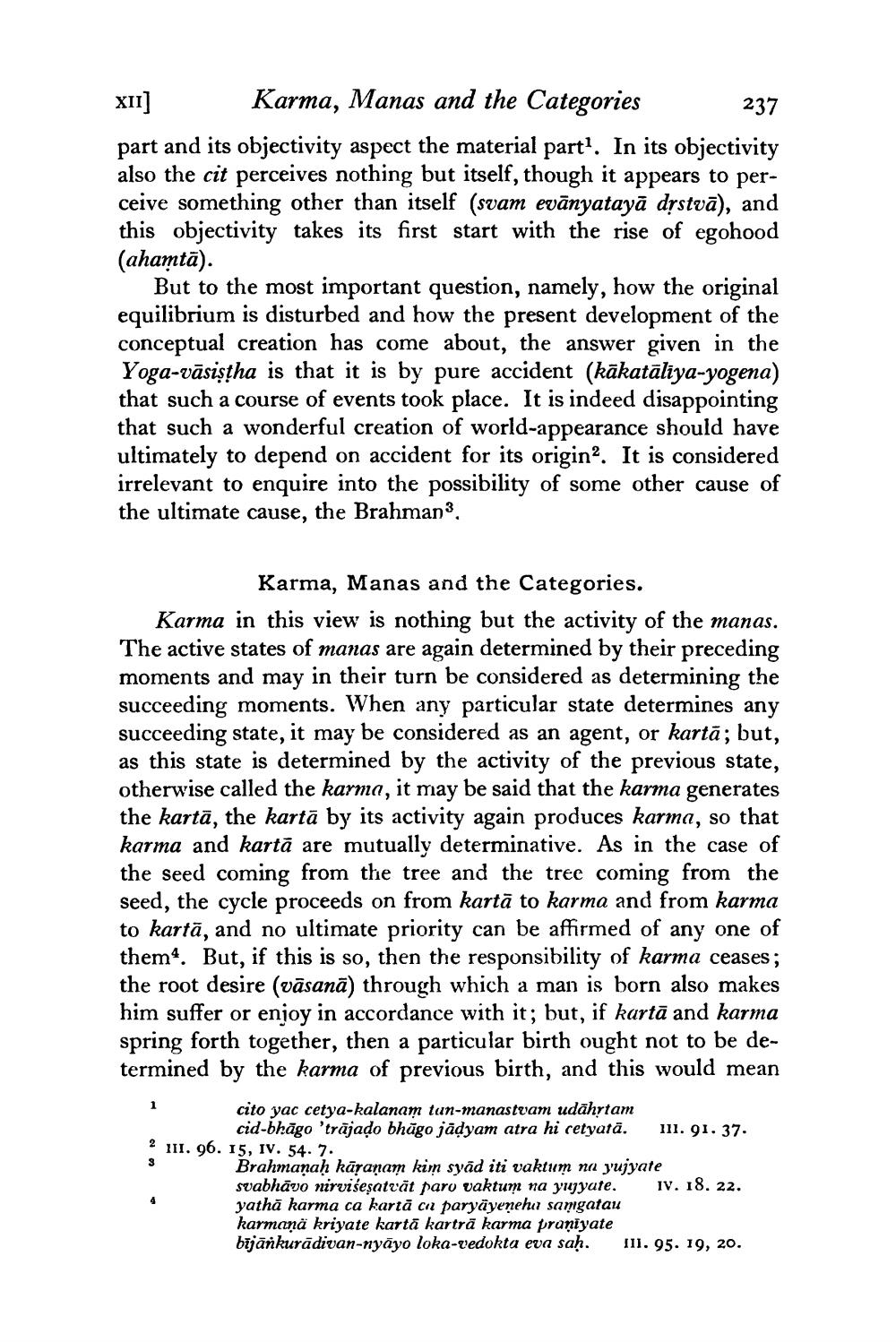________________
XII]
Karma, Manas and the Categories
237
part and its objectivity aspect the material part1. In its objectivity also the cit perceives nothing but itself, though it appears to perceive something other than itself (svam evānyatayā dṛstva), and this objectivity takes its first start with the rise of egohood (ahamtā).
But to the most important question, namely, how the original equilibrium is disturbed and how the present development of the conceptual creation has come about, the answer given in the Yoga-vāsiṣṭha is that it is by pure accident (kākatāliya-yogena) that such a course of events took place. It is indeed disappointing that such a wonderful creation of world-appearance should have ultimately to depend on accident for its origin2. It is considered irrelevant to enquire into the possibility of some other cause of the ultimate cause, the Brahman3.
Karma, Manas and the Categories.
Karma in this view is nothing but the activity of the manas. The active states of manas are again determined by their preceding moments and may in their turn be considered as determining the succeeding moments. When any particular state determines any succeeding state, it may be considered as an agent, or kartā; but, as this state is determined by the activity of the previous state, otherwise called the karma, it may be said that the karma generates the kartā, the kartā by its activity again produces karma, so that karma and kartă are mutually determinative. As in the case of the seed coming from the tree and the tree coming from the seed, the cycle proceeds on from kartā to karma and from karma to kartā, and no ultimate priority can be affirmed of any one of them. But, if this is so, then the responsibility of karma ceases; the root desire (vāsanā) through which a man is born also makes him suffer or enjoy in accordance with it; but, if kartā and karma spring forth together, then a particular birth ought not to be determined by the karma of previous birth, and this would mean
cito yac cetya-kalanam tun-manastvam udāhṛtam cid-bhago 'trajado bhago jāḍyam atra hi cetyatā. 2 III. 96. 15, IV. 54. 7.
1
111. 91. 37.
Brahmanaḥ kāraṇam kim syād iti vaktum na yujyate svabhavo nirviseṣatvät paro vaktum na yujyate. yatha karma ca kartă ca paryayeneha samgatau karmanä kriyate kartā kartrā karma praṇiyate bījāńkurādivan-nyayo loka-vedokta eva saḥ.
IV. 18. 22.
III. 95. 19, 20.




